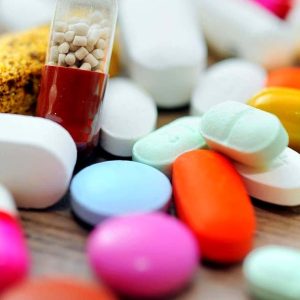Addressing the grave concern of antibiotic resistance requires a global effort. Cooperation between healthcare providers, researchers, policymakers, and the public is crucial for effective solutions…writes Dr. Namita Jaggi
Antibiotics revolutionised the field of medicine, saving countless lives by combating bacterial infections. However, there is one thing that has emerged as a cause of major concern. Their misuse and overuse presents a looming threat: antibiotic resistance.
What is Antibiotic Resistance?
Antibiotic resistance happens when bacteria evolve to withstand the effects of antibiotics, which makes these medications ineffective. This phenomenon is a global threat that is the consequence of overuse and misuse of antibiotics. Resistant infections are harder to treat, leading to prolonged illnesses, increased healthcare costs, and, in some cases, higher mortality rates.
This article delves into 10 crucial facts about antibiotic overuse that need attention. Each point in this article highlights the urgent need for responsible antibiotic use. Agricultural practices, incomplete courses, and the global implications of resistance highlight the interconnected nature of this issue. Understanding these facts is essential for fostering a collective commitment to preserving the efficacy of antibiotics and safeguarding public health.
Antibiotics Are Not Always the Answer: It is important to understand that antibiotics are effective against bacterial infections, not viral ones. Overuse of antibiotics for viral illnesses, like the common cold or flu, contributes to antibiotic resistance. Therefore their excessive use to treat viral infections must be prevented.
Antibiotic Resistance is a Growing Threat: Not many people are aware but the phenomenon of antibiotic resistance is a growing threat. Overusing antibiotics leads to the development of bacteria that is resistant, thus reducing the effects of antibiotics and making infections harder to treat. This global issue poses a significant threat to public health.
Incomplete Courses Contribute to Resistance: One of the most important things that contributes to antibiotic resistance is not completing the antibiotic course. Not finishing a prescribed antibiotic course can leave surviving bacteria more resistant. It’s therefore crucial to complete the full course as directed by a healthcare professional.
Agricultural Practices Contribute to Antibiotic Resistance: Surprisingly, agricultural practices are also contributing to antibiotic resistance. This is because antibiotics are often used in agriculture for promoting animal growth. This contributes to the spread of resistant strains, affecting both animals as well as humans.
Emergence of Superbugs: Resistant bacteria, or “superbugs,” are evolving rapidly evolving. Thi is due to the overuse of antibiotics. Some strains are resistant to multiple antibiotics, complicating the treatment options.
Possibility of Secondary Infections Arising: Weakened by broad-spectrum antibiotics, the body becomes susceptible to secondary infections like Clostridium difficile (C. diff), resulting in severe complications.
Individual Actions Matter: Each person’s responsible use of antibiotics can collectively contribute in combating resistance. Avoid self-prescribing and only take antibiotics when they are prescribed by a qualified healthcare professional.
Global Collaboration is Important: Addressing the grave concern of antibiotic resistance requires a global effort. Cooperation between healthcare providers, researchers, policymakers, and the public is crucial for effective solutions.
Existence of Research and Development Gaps: The need of the hour is new antibiotics and alternative treatments. However, due to financial challenges, pharmaceutical companies may be hesitant to invest in research for new antimicrobial agents.
Education is the Key: Raising awareness and educating people about antibiotic overuse and resistance is essential. Education campaigns can empower individuals to make informed decisions, and eventually reducing the unnecessary antibiotic use. This can significantly help in reducing antibiotic resistance.
To sum up, understanding antibiotic resistance and the impact of antibiotic overuse is necessary for safeguarding our health and the effectiveness of these crucial medications. By adopting responsible practices, supporting research, and fostering global collaboration, we can deal with the challenges posed by antibiotic resistance.
ALSO READ-E-tongue, AI model to help predict bitterness of medicines











